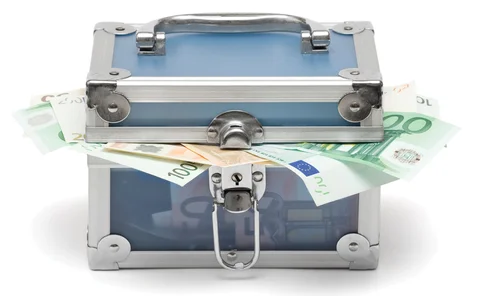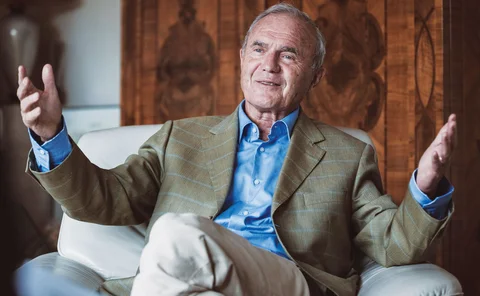Economic and Monetary Union (EMU)
ECB could go below r* when setting policy, says Panetta
Bank of Italy governor says eurozone has to return to “normal way of doing monetary policy”
Monetary unions in the making in Africa
EAC, Ecowas and SADC can adopt practical steps learned from EMU to prepare for their own currency unions
The eurozone’s eastern conundrum
Bulgaria and Croatia expect a net positive effect as they take final steps to join the euro, while the Czech Republic, Hungary and Poland remain reluctant
Lifetime achievement award: Otmar Issing
The architect of the euro’s monetary operating framework is still playing an important role in shaping the debate on monetary policy
West Africa launches new currency in break with France
New ‘eco’ currency will still be pegged to the euro, but France will have less involvement in the affairs of the West African Economic and Monetary Union
Central banking’s 30-year cycle
Central banking has hit another crossroads, writes Central Banking founder Robert Pringle
Reserve requirements an effective tool to balance capital flows – BIS research
Higher interest rates encourage more inflows, but adjustments in reserve requirements can strike a better balance
Book notes: Unfinished business, by Tamim Bayoumi
Anand Sinha praises Bayoumi’s analysis of how the euro crisis and US housing crash were, in fact, intertwined
Income convergence in reverse among original euro members, research says
Fall in income disparities halted soon after 2002 and started to increase after financial crisis
ECB policymakers see a robust economic recovery – minutes
Rate setters satisfied with the impact of the QE extension decided in October
Archive – EMU: a sceptical US view
Allan Meltzer of the American Economic Association explains why he is worried about a union by the back door; first published in November 1997
Book notes: The Limits of the Market, by Paul de Grauwe
De Grauwe has produced a concise analysis into how markets and governments react with one another; but his lack of familiarity with the history of economic thought is surprising
Credit spreads’ limited use as short-term predictors – paper
Researcher examines the accuracy of three sets of credit spreads
Bundesbank’s Buch calls for three-pronged reform effort
Bundesbank vice-president says policymakers should tackle “excessive” risk-taking to prevent further financial crises; evaluating reform is key, says Buch
The ECB must reform Target2 to make it sustainable
Target2 has emerged as the eurozone’s financing entity for ballooning structural balance-of-payments gaps. The present system is unsustainable and needs reform, says Philip Turner
Book notes: Architects of the Euro, edited by Kenneth Dyson and Ivo Maes
This biographical study of the 10 key players in the development of the Economic and Monetary Union provides a contrast to more historical analyses
Netherlands paper exposes differing capital flows across EMU
Paper examines the mechanism behind divergence of north and south eurozone members, as capital flows caused external imbalances to move in opposite directions
Ignazio Visco on Italian banks and why the ECB should not be made a ‘scapegoat’ for EMU fatigue
The Bank of Italy governor speaks to Chris Jeffery about resolving Italy’s NPLs, Europe’s bail-in framework, the importance of QE and why the ECB needs to stop being made a ‘scapegoat’ for EMU fatigue
No ‘insidious’ German plan for EMU competitive advantage, says Issing
Otmar Issing says Germany didn't even have 'the economic intelligence' to design such a plan; country suffered years of high unemployment as others such as Italy failed to capitalise on price stability
Otmar Issing on why the euro ‘house of cards’ is set to collapse
Euro architect tells Chris Jeffery that muddling from one crisis to another cannot go on endlessly. Politicians need to admit “there is no likelihood” of political union to give EMU rules a chance
Euro architect says ECB has ‘destroyed’ market discipline in Europe
Otmar Issing, the man who designed the operational framework for the euro, says failures by European politicians and the ECB mean “all the elements” are in place to bring “disaster” to the monetary union























